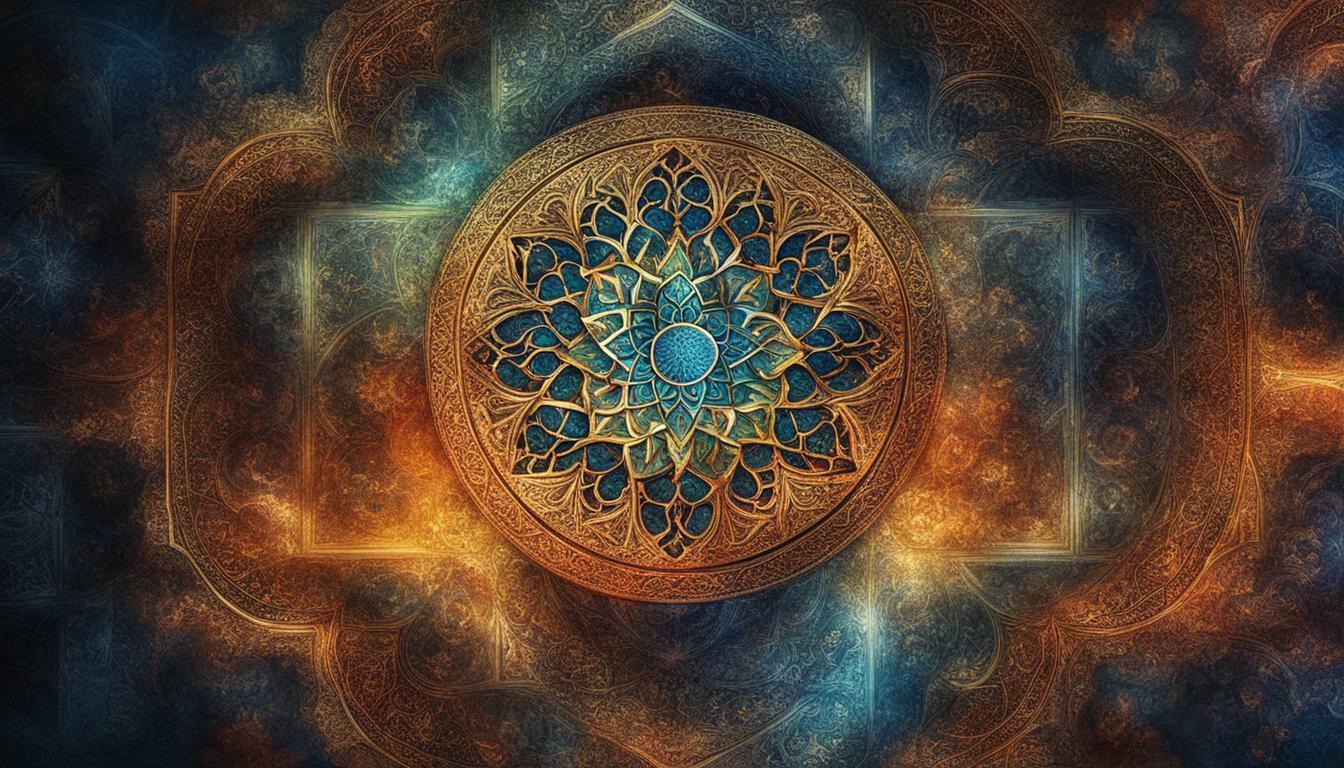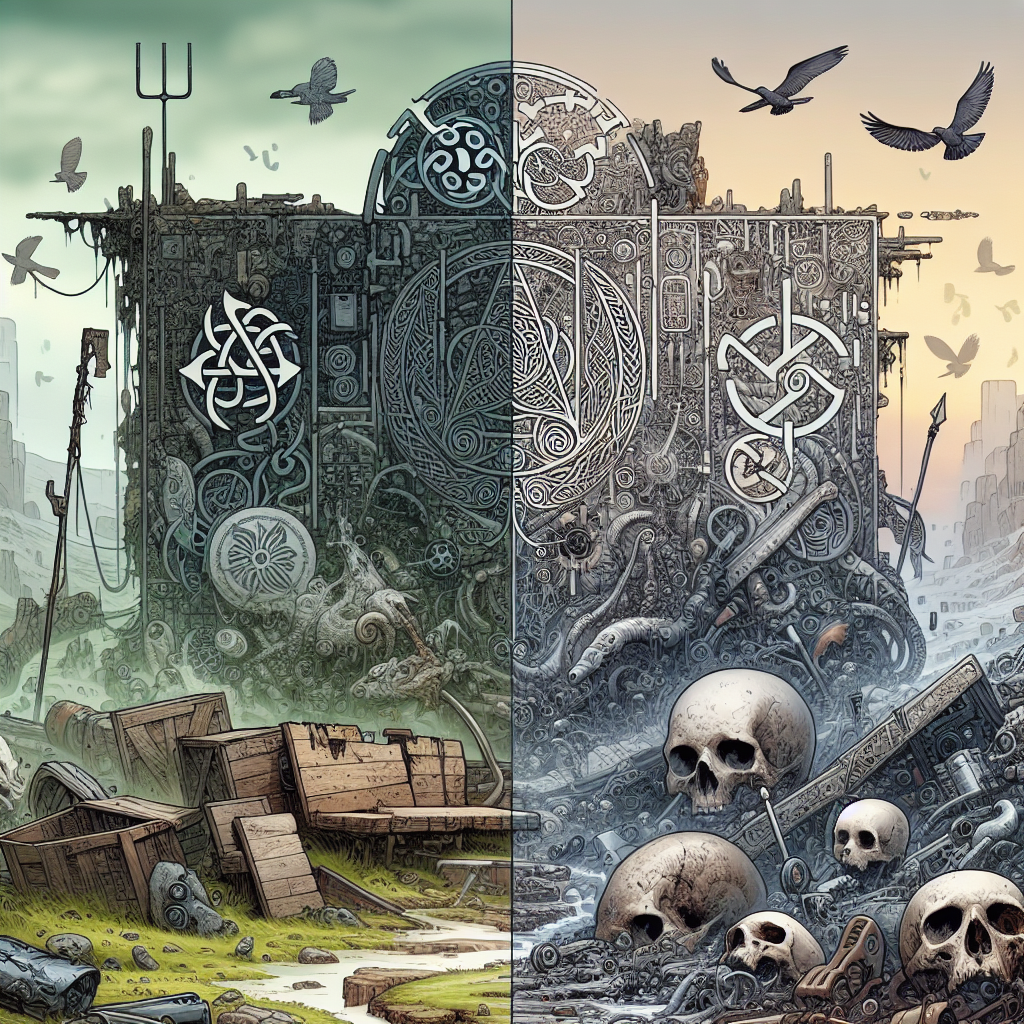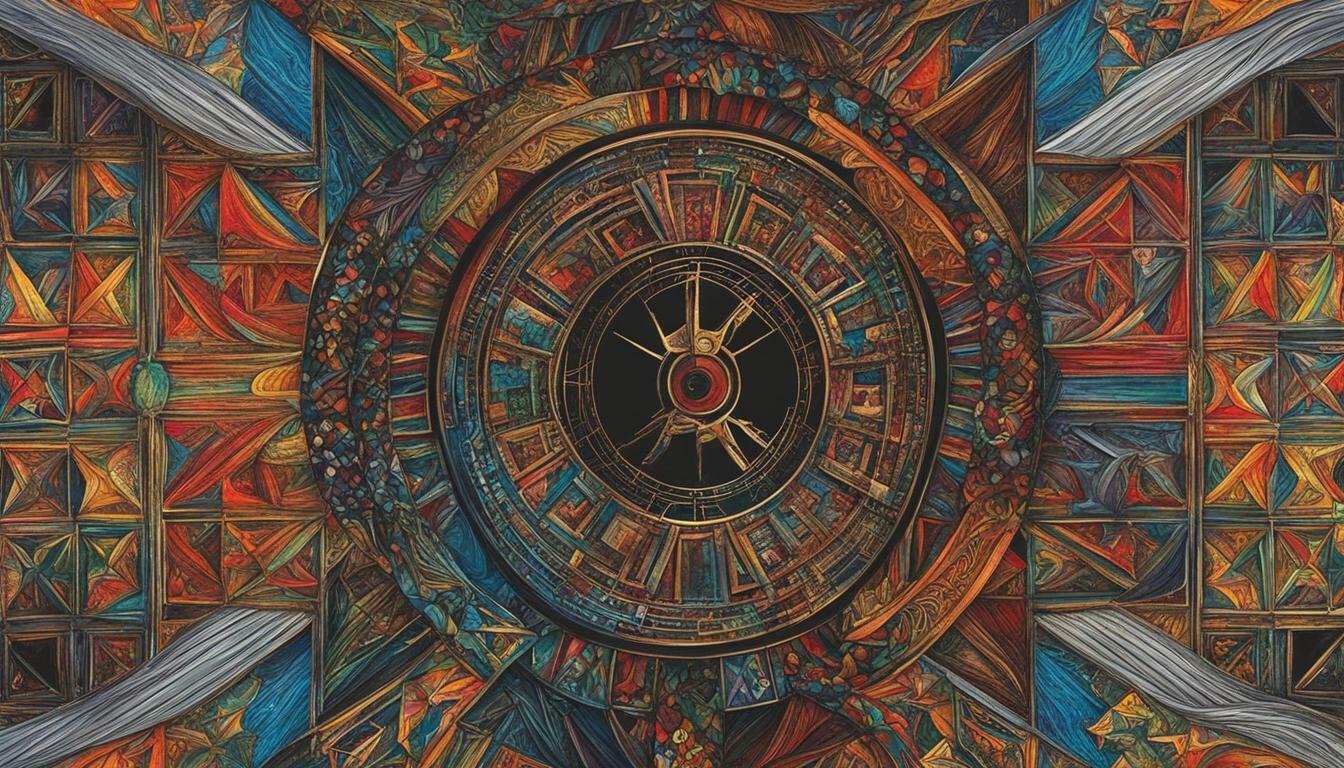The Islamic Day of Judgment and the Christian Apocalypse are significant events in the respective faiths, but they have distinct differences in terms of beliefs and interpretations. In Islamic belief, sin is seen as a result of human forgetfulness and disbelief, while Christianity sees sin as a deeper issue. Muslims believe that the Quran offers guidance and serves as a reminder of God’s will, while Christians believe that Jesus is the revelation of God himself. The end goal in Islam is to obtain paradise, where one’s imperfections are not as significant, while Christianity aims for the presence of God himself. These fundamental differences provide opportunities for meaningful discussions between Muslims and Christians.
Key Takeaways:
- The Islamic Day of Judgment and the Christian Apocalypse are significant events in their respective faiths.
- Islamic beliefs view sin as a result of forgetfulness and disbelief, whereas Christianity sees sin as a deeper issue.
- Muslims believe the Quran offers guidance, while Christians believe Jesus is the revelation of God.
- The ultimate goal in Islam is paradise, while Christianity seeks the presence of God himself.
- Understanding these differences can lead to respectful dialogue and knowledge-sharing between Muslims and Christians.
Islamic Beliefs about the Day of Judgment
In Islamic belief, the Day of Judgment is seen as a result of human forgetfulness and disbelief, and it holds significant importance in shaping one’s afterlife. Muslims believe that this day will mark the end of the world and the beginning of the eternal life to come. The Quran, the holy book of Islam, serves as a guide for Muslims to follow in order to attain righteousness and prepare themselves for the Day of Judgment.
In Islam, the concept of sin is viewed as a consequence of human weakness and the tendency to forget or stray from the path of righteousness. It is believed that on the Day of Judgment, every soul will be held accountable for their actions and will be judged accordingly. Good deeds and faith are believed to be the keys to paradise, where one will be reunited with loved ones and enjoy eternal bliss.
Comparing Islamic beliefs about the Day of Judgment to Christian beliefs about the Apocalypse, we find some intriguing differences. While both religions acknowledge the importance of judgment and the afterlife, there are contrasting perspectives on sin and the ultimate goal of the afterlife. Muslims seek paradise as a place of reward and purification, where imperfections are diminished, while Christians aspire to be in the divine presence of God himself.
Understanding these differences in Islamic and Christian eschatology can foster meaningful dialogue and the sharing of knowledge between individuals of different religious backgrounds. By exploring these intricacies, we can gain a deeper appreciation for the diversity of beliefs and foster mutual respect and understanding.
Christian Beliefs about the Apocalypse
Christianity views the Apocalypse as a deeper issue, with sin being inextricably tied to human nature and the need for salvation through Jesus Christ. Christians believe that sin entered the world through the disobedience of Adam and Eve in the Garden of Eden. This original sin has tainted humanity, resulting in a separation from God and the need for redemption. According to Christian belief, Jesus Christ, the Son of God, came to earth to offer salvation to humanity through his death and resurrection.
In Christian eschatology, the Apocalypse is seen as the ultimate manifestation of God’s plan for the redemption and restoration of the world. It is believed that Jesus will return to judge the living and the dead, and to establish the Kingdom of God. The Book of Revelation in the Bible describes the events leading up to the Apocalypse, including the rise of the Antichrist, the final battle between good and evil, and the renewal of creation.
While there are similarities between Islamic and Christian beliefs about the end times, such as the expectation of a final judgment and the belief in a life after death, there are also significant differences. One of the key distinctions lies in the conception of sin. Islam views sin as a result of human forgetfulness and disbelief, while Christianity sees sin as a deeper issue that requires divine intervention for forgiveness and salvation.
| Comparison of Islamic and Christian Beliefs on the End Times | |
|---|---|
| Islamic Beliefs | Christian Beliefs |
| Sin seen as a result of forgetfulness and disbelief | Sin seen as a deeper issue rooted in human nature |
| The Quran offers guidance and serves as a reminder of God’s will | Jesus is believed to be the revelation of God himself |
| Ultimate goal is to obtain paradise | Ultimate goal is the presence of God himself |
Interpreting the Differences
The differences between Islamic eschatology and Christian beliefs about the end times provide opportunities for meaningful discussions and understanding between Muslims and Christians. These theological disparities reflect distinct perspectives on sin, the role of religious texts, and the ultimate goals of the afterlife.
In Islam, sin is perceived as a consequence of human forgetfulness and disbelief, a departure from the remembrance of God. The Quran, considered the divine revelation, serves as a guide and reminder of God’s will for humanity. Muslims strive to achieve paradise, where imperfections are diminished, and eternal bliss is attained.
On the other hand, Christianity views sin as a deeper issue that separates humanity from God. Christians believe that Jesus Christ, the revelation of God himself, is the ultimate solution to this separation. Through Jesus, believers seek a restored relationship with God, yearning for the presence of God himself in the afterlife.
The contrasting interpretations of sin and the role of sacred texts shape the eschatological beliefs of Muslims and Christians. These differences offer fertile ground for respectful dialogue and knowledge-sharing between the two faiths, fostering understanding and deeper connections.
| Islamic Eschatology | Christian Beliefs |
|---|---|
| Focuses on the Day of Judgment as the ultimate culmination of human existence | Anticipates the Apocalypse as the climax of the world’s history |
| Sees sin as a result of forgetfulness and disbelief | Views sin as a deeper issue, creating a separation between humanity and God |
| Considers the Quran as the divine guide and reminder of God’s will | Believes that Jesus is the revelation of God himself |
| Aims for paradise, where imperfections are diminished | Aspires for the presence of God himself in the afterlife |
By engaging in conversations that explore these theological distinctions, Muslims and Christians have the opportunity to deepen their understanding of each other’s beliefs and foster mutual respect. Such dialogue can lead to increased empathy and cooperation, ultimately promoting peace and harmony among different religious communities.
Conclusion
In conclusion, while both the Islamic Day of Judgment and the Christian Apocalypse revolve around the end times, they have distinct differences in terms of beliefs, interpretations, and ultimate goals in the afterlife. In Islamic belief, sin is seen as a result of human forgetfulness and disbelief, whereas Christianity views sin as a deeper issue. Muslims believe that the Quran offers guidance and serves as a reminder of God’s will, while Christians believe that Jesus is the revelation of God himself.
The end goal in Islam is to obtain paradise, where one’s imperfections are not as significant, allowing for eternal bliss. On the other hand, Christianity aims for the presence of God himself in the afterlife, desiring an intimate relationship with the divine. These fundamental differences in belief provide opportunities for meaningful discussions and learning between Muslims and Christians, fostering mutual respect and understanding.
It is crucial to approach these differences with an open mind and engage in respectful dialogue, recognizing that diversity of beliefs can enrich our understanding of the human experience. By seeking knowledge and sharing perspectives, we can promote harmony and build bridges of understanding among different religious communities.
Embracing Our Differences to Foster Harmony
“In diversity, there is beauty and there is strength.” – Maya Angelou
As we explore the variances in beliefs and interpretations of the Islamic Day of Judgment and the Christian Apocalypse, we have the opportunity to appreciate the rich tapestry of human spirituality. By embracing our differences and engaging in meaningful conversations, we can foster harmony and promote a world where different religious perspectives are respected and valued.
FAQ
What is the difference between the Islamic Day of Judgment and the Christian Apocalypse?
In Islamic belief, sin is seen as a result of human forgetfulness and disbelief, while Christianity sees sin as a deeper issue.
How do Muslims view sin and guidance?
Muslims believe that sin is a result of human forgetfulness and disbelief, and they view the Quran as a source of guidance and a reminder of God’s will.
What is the Christian perspective on sin and revelation?
Christians believe that sin is a deeper issue, and they view Jesus as the revelation of God himself.
What is the ultimate goal in Islam?
The ultimate goal in Islam is to obtain paradise, where one’s imperfections are not as significant.
What is the aim of Christianity?
Christianity aims for the presence of God himself in the afterlife.
How do these fundamental differences impact discussions between Muslims and Christians?
These fundamental differences provide opportunities for meaningful discussions between Muslims and Christians, allowing for a deeper understanding of each other’s beliefs.
 Skip to main content
Skip to main content


